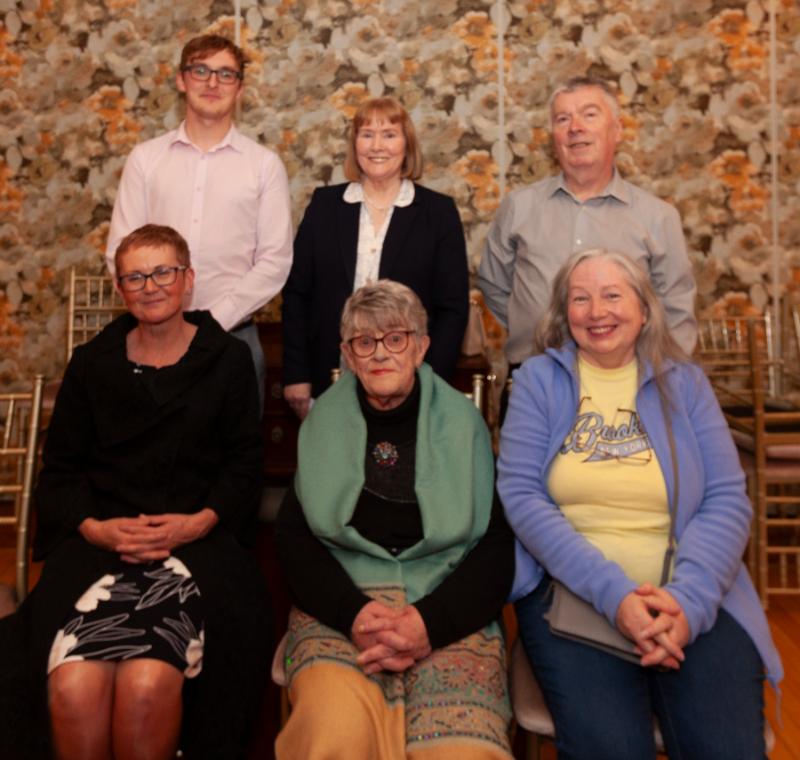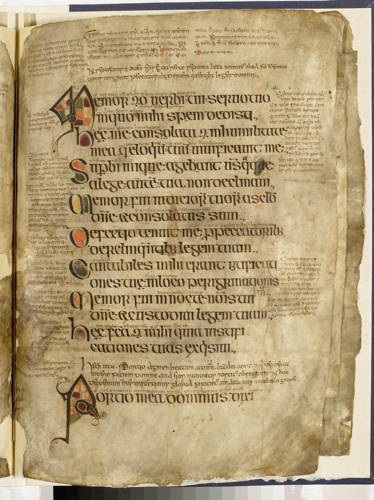The 2026 summer school has a social, cultural and academic programme informed by the theme:
Myths, Legends and Laws
The 2026 History Summer School will be held over the weekend of the 8th to 10th May. The theme of the school is “Myths, Legends and Laws” /”Miotais, Finscéalta agus Dlíthe”
The summer school celebrates the contribution made by Mícheál Ó Cléirigh and his team of annalists to preserving the ancient history of Ireland in the very turbulent time of the early 17th Century. The academic programme on 9th May comprises a series of talks by leading historians of that period of Irish history and designed to expand and deepen understanding of Irish history by sharing research on topics linked to “Myths, Legends and Laws”.
Work is in progress planning the programme for our 2026 Summer School and a full programme will be published in the next while.
Welcome to the Mícheál Ó Cléirigh Summer School
Fáilte chuig Scoil Samhraidh Mhíchíl Uí Chléirigh
A Summer School for remembering, for learning, for enjoyment. We remember a great local man, Mícheál Ó Cléirigh. We learn from scholars about his story and his times. We begin to understand what this means for us today. And we enjoy ourselves.
We travel to local historic sites. We visit Mícheál’s birthplace. We walk the beautiful Rossnowlagh beach. We talk late into the evening in the local hostelries. Welcome to the Mícheál Ó Cléirigh Summer School to a family distinguished by scholarship. His older brother, Maolmhuire (Fr Bernadine) was ordained in Salamanca, Spain, later moving to Louvain, Belgium in 1619 and Michael joined him a few years later. As a lay brother Michael was able to concentrate on historical research and transcription rather than on priestly duties.
In 1626 he was dispatched by a fellow Donegal man, Hugh Ward to Ireland to collect the lives of the Irish saints. This he did. But he also did more. For 10 years, Michael travelled the length and breadth of Ireland gathering the ancient manuscripts and histories wherever he could find them. He and his collaborators transcribed the material into Annála Ríochta na hÉireann (the Annals of the Four Masters). They left us with an incomparable record of the history of Ireland.
The Mícheál Ó Cléirigh School has been set up by a partnership of:
Local Organising Committee
Local people from Ballyshannon, Creevy and Rossnowlagh area in Co. Donegal who wish to preserve the memory of Mícheál Ó Cléirigh, a local hero who did so much to preserve the ancient and medieval period of Irish History. The committee begin work in September each year planning the upcoming Summer School
Franciscan Community Rossnowlagh
The Franciscan Friars who established a Friary on Donegal Bay 1474 and played such an important part in Irish writing and scholarship from their monasteries in Ireland and Louvain.
Mícheál Ó Cléirigh Institute UCD
The Mícheál Ó Cléirigh Institute at University College Dublin repository of an unparalleled archive of historical documents and the centre of voluminous research on Irish medieval history since its inception in the year 2000. See: www.ucd.ie/mocleirigh
The Mícheál Ó Cléirigh Summer School Rossnowlagh, Co. Donegal
Background
2014–
The inaugural programme of the Mícheál Ó Cléirigh School took place on Saturday 17th May, 2014. with the theme “Mícheál Ó Cléirigh” The main events were held in the Ó’Cléirigh Hall beside the Franciscan Friary at Rossnowlagh, close by the birthplace of Mícheál Ó Cléirigh on lands that belonged to the Ó Cléirigh clan, prior to 1610. The venue was an appropriate one, as it was built by the Franciscan Friars who returned to Donegal in 1946. They were, of course, influenced by the association of the area with some of the renowned members of their Irish fraternity, such as Mícheál Ó Cléirigh, John Colgan and Hugh Ward. See: Summer School 2014 – Theme Mícheál Ó Cléirigh
2015 –
The Second Mícheál Ó Cléirigh School took place at Rossnowlagh on the weekend of 15th – 17th May, 2015. The theme was “Saints and Scholars” “Naomh agus Scoláirí ” The original purpose of Mícheál Uí Cléirigh’s return to Ireland was to collect information on the many Irish Saints and to record their information. For Further information see: 2015 Theme Saints and Scholars
2016-
The Third Mícheál Ó Cléirigh Summer School was held over the weekend of Friday 27th May to Sunday 29th May 2016. The theme was “Refugees and Strangers” “Dídeanaithe agus Strainséirí ” This examined the exodus of many of the Gaelic nobility who left Ireland for European countries and how they coped by being refugees far from their native land. For Further information see: 2016- Refugees and Strangers: being Irish in Europe 1500-1800
2017-
The Fourth Mícheál Ó Cléirigh Summer School was held over the weekend of Friday 12th May to Sunday 14th May 2017. The theme was “Irish and European” “Gaelach agus Eorpach” The weekend events looked at the relationship between Ireland and European countries in the 16th and 17th Centuries and how this has continued to the present time. For Further information see: 2017- Irish and European
2018-
The Fifth Mícheál Ó Cléirigh Summer School was held over the weekend of Friday 11th May to Sunday 13th May 2018. The theme was “Annals and Earls” “Annála agus Iarlaí ” This looked at the way the Ulster Earls were described in the Annals of the Four Masters and did they have a particular O’Donnell favouritism in their recording of the events of the late 16th and Early 17th Centuries. For Further information see: 2018 Annals & Earls
2019-
The Sixth Mícheál Ó Cléirigh Summer School was held over the weekend of Friday 10th May to Sunday 12th May 2019. The theme was “Migration and Plantation” “Imirce agus Plandáil” The Ulster Plantation had a tremendous effect on the lives of the Gaelic Scholars and they found that their skills and learning was no longer required. For Further information see: 2019 Migration & Plantation
2020-
Due to Covid 19 health restrictions the 2020 Summer School was cancelled.
2021 –
A Virtual Summer School was held from Thursday 6th to Sunday 9th of May. The theme was “Women in Turbulent Times- Mná in Aimshir Chorraithe 1551- 1651” This virtual school looked at the way women of the period recorded events in letters sent to their parents husbands and siblings and how they wrote about the things that mattered to their lives and families. For Further information see: 2021 Women in Turbulent Times
2022-
The 2022 Summer School was held School was held over the weekend of May 7th to 9th, The event was held in the Sandhouse Hotel in Rossnowlagh and the theme was Bloodshed and Retribution Doirteadh Fola agus Díoltas in the period 1530 to 1700. It looked at the changes from the Gaelic system of Brehon Law to the new system of English Common Law and how it differed from that of other parts of England Wales and Scotland. For Further information see: 2022 Bloodshed & Retribution
2023-
The 2023 Summer School was held over the weekend of the 5th -7th May and its theme was Feast – Food- Famine / Féasta- Bia-Ganntanas The various talks explored the hardships of day-to-day life in post medieval Ireland in the period from 1500 to 1800 where seasons good or bad could determine the life expectancy of men, women and children. It examined the importance that food or the lack of it can shape historical events of any period in history. For Further information see: 2023 Feast- Food- Famine
2024
The 2024 Summer School was held over the weekend of Friday 10th May until Sunday 12th May The theme for the weekend was Words, Language and Lore / Focail, Teanga agus Seanchas and it examined how words and language collided in the Ireland of Mícheál Ó Cléirigh. For Further information see: 2024 Words, Language and Lore Focail, Teanga agus Seanchas – Mícheál Ó Cléirigh Summer School
2025
The 2025 Summer School was held over the weekend from Friday 9th May to Sunday 11th May, The theme of the history school was Diaspora and Homecoming /Deoraithe ag Filleadh ar ais go hÉireann. The theme examined the various groups of Irish people left to trade, join armies or looked for political refuge. For further information see: 2025 Summer School: Diaspora and Homecoming/Deoraithe ag Filleadh ar ais go hÉireann – Mícheál Ó Cléirigh Summer School


